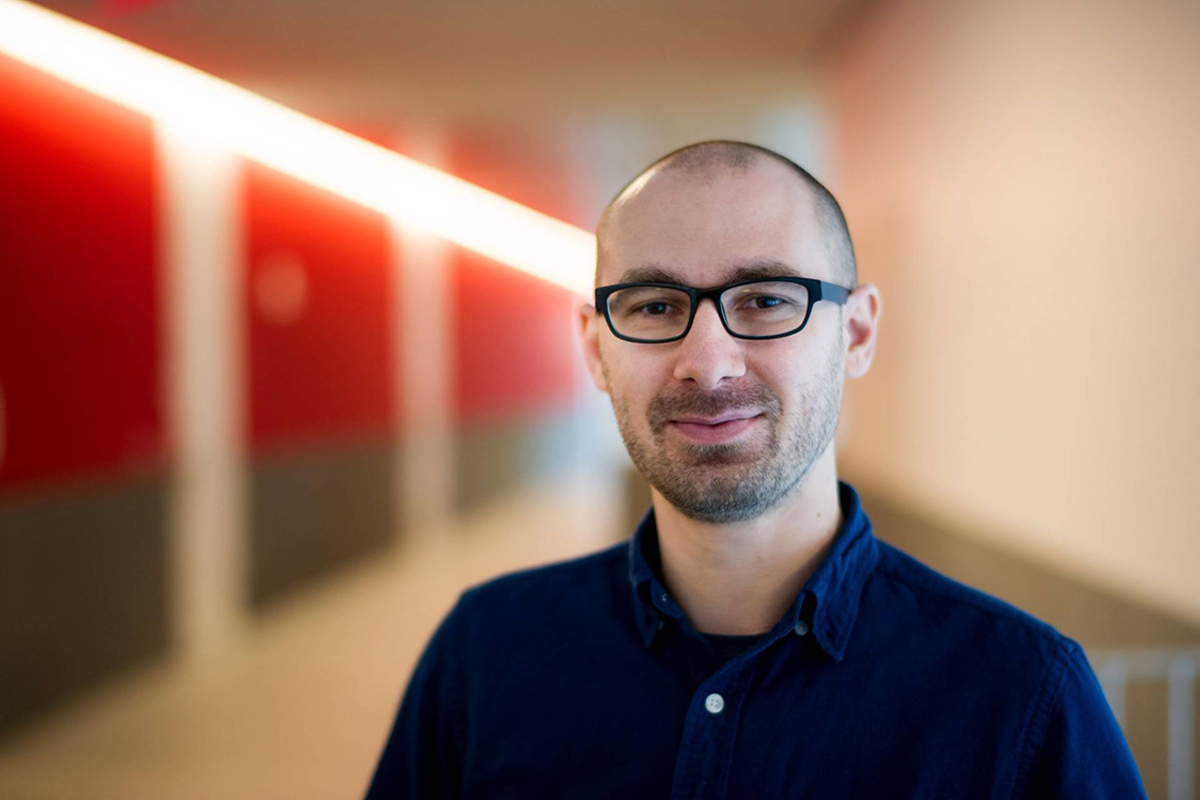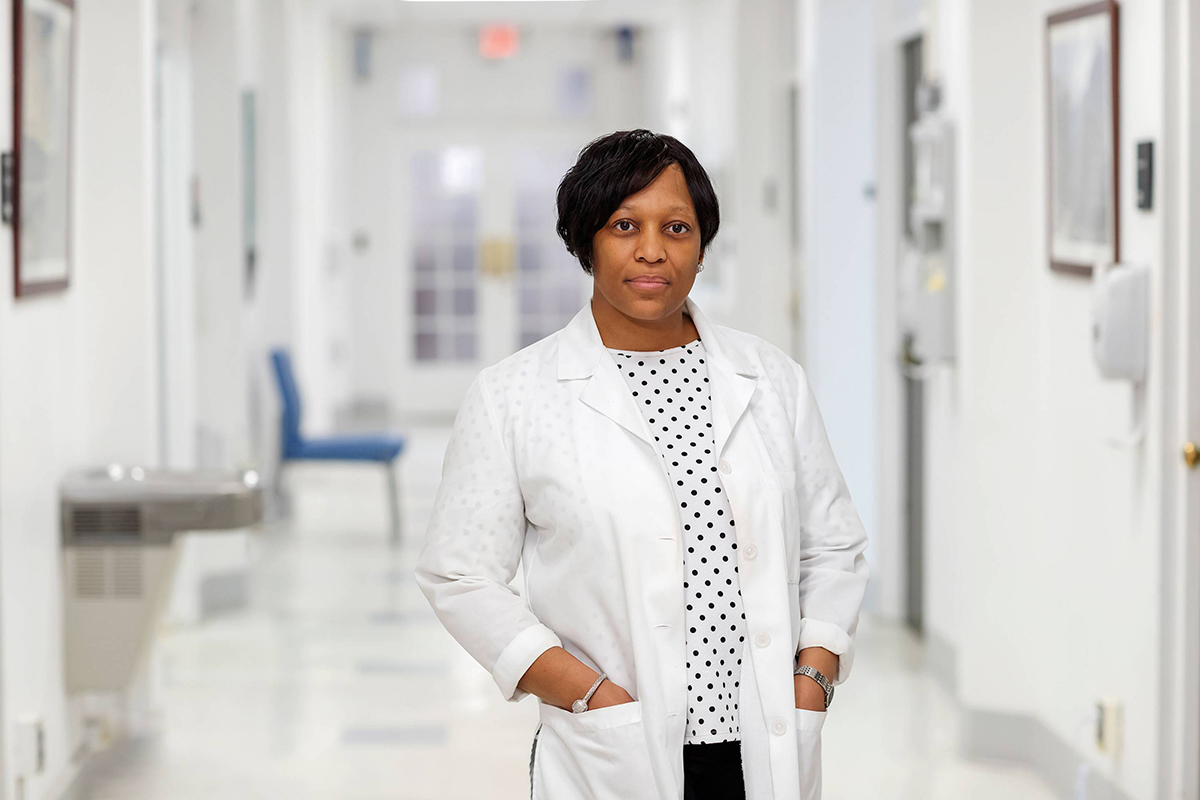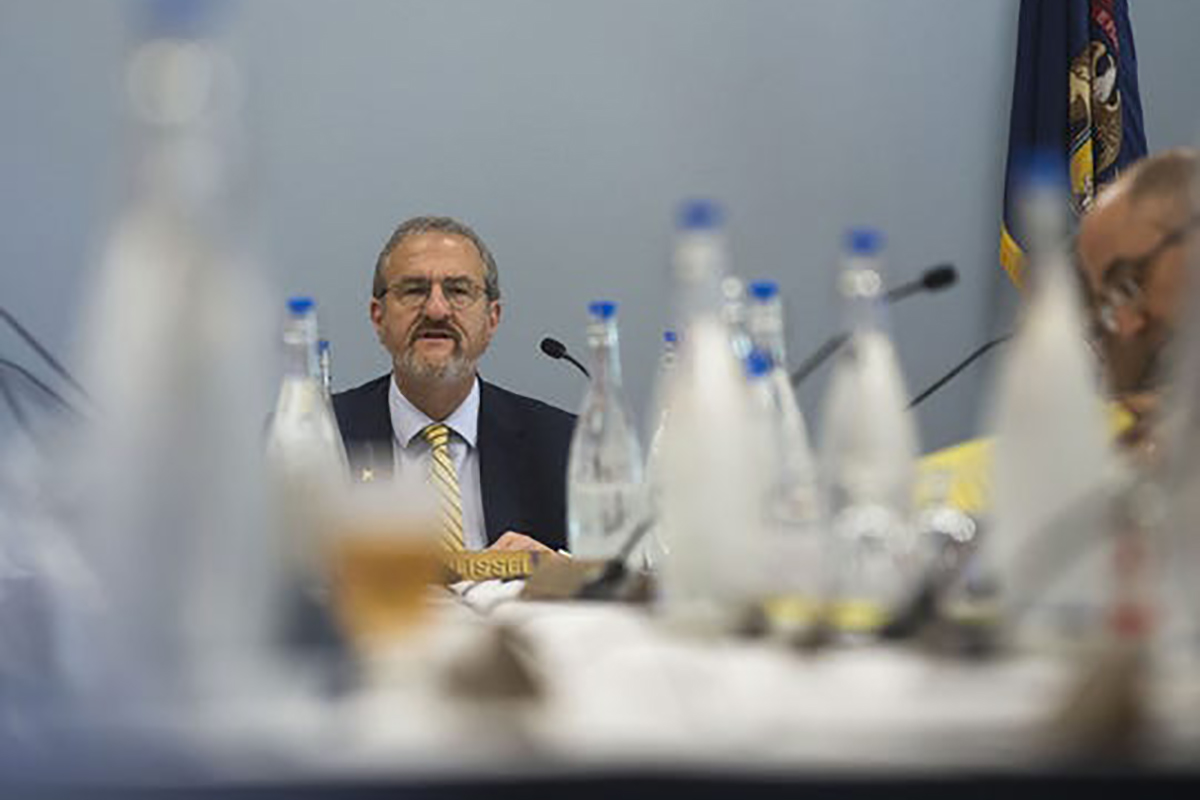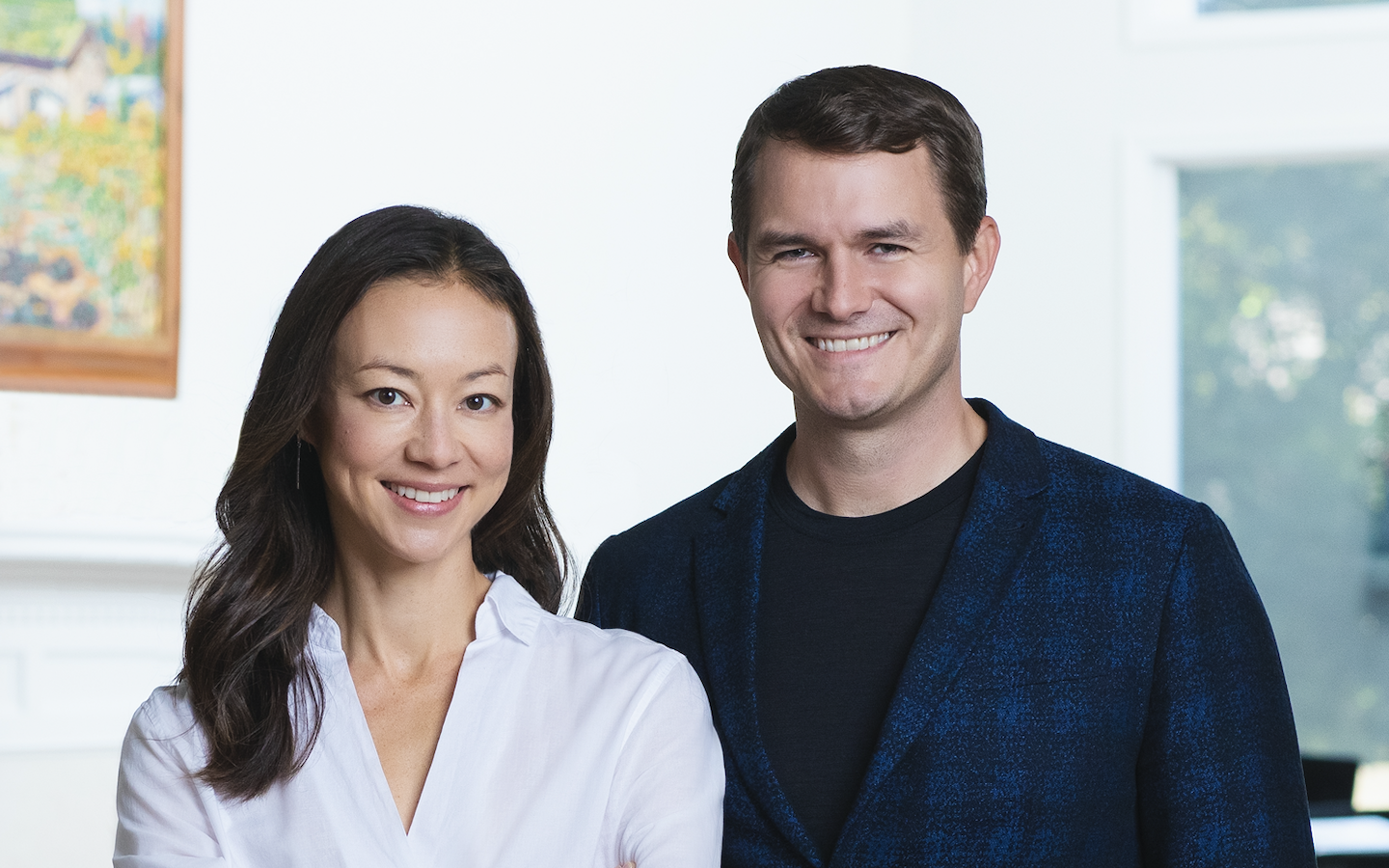
This was not the start of 2020 that Martin Rawls-Meehan ’01 had planned.
Shortly after a trip to Asia in January to visit manufacturing partners, the CEO and co-founder of Reverie, a Michigan-based company that produces smart-tech sleep systems, sat down with his leadership team. He had a preview of what was coming: A deadly virus expanding rapidly. Supply chains under threat. Nations closing borders. Employees at risk of infection.
“We were sitting down at an executive table saying, ‘Team, this is not normal,’” he said. “We began preparing our business for what it would look like if things shut down in the U.S. like in China.”
When COVID-19 reached the United States in March — including hotspots in Michigan — Reverie was one of millions of American companies that was impacted. Its facilities in Michigan and Buffalo slowed, and Rawls-Meehan and his wife Lisa Tan ’01, who is Reverie’s chief marketing officer, joined their colleagues in making the best of work-at-home conditions.
But as they looked around at the pandemic panic — especially the well-publicized shortage of personal protective equipment (PPE) — Tan and Rawls-Meehan realized they were in position to help. Reverie had the production technology and capacity and the business relationships to mass produce cloth protective face masks. “We couldn’t make medical grade masks, but did have the ability to make cloth masks for laypeople so that N95s could be saved for frontline heroes,” Tan said.
“As things got worse and worse in early March, I called one of our domestic suppliers on the mattress side and said, ‘Have you thought about making masks?’” Rawls-Meehan said.
Their Chicago-based supplier had already begun tooling up for mask production, and Reverie quickly started outreach to match masks to those in need. Before long, the supplier hit capacity, while demand continued to rise.
“We just started getting calls from all over,” Rawls-Meehan added.
Reverie set up additional mask manufacturing at their joint venture in Vietnam and a facility in China, which both have capacity for high volume production.
“We were taking machines that were designed to make mattress covers, shirts and other clothes, and repurposing them for masks for the people who needed them most,” Rawls-Meehan said.
The three-ply, non-medical cotton masks are washable and reusable, with elastic ear loops for a comfortable fit. “A big concern with the use of masks is going to be the perceived disposable nature of them,” Tan said. “So to have something that you can wear again and again and is breathable is critical. Especially as we get to the point where people are required to wear them all the time.”
All told, Reverie manufactured approximately two and half million masks. They sold some of the masks for a sliver of profit in order to subsidize the boxes of masks they donated to schools, charities and other health centers. With the assistance of Deeb Salem ’01, they arranged the delivery of 10,000 masks to Tufts Medical Center in Boston.
A few months later, as Princeton University was deliberating about its plans for the fall semester, the couple — who will be celebrating their 20th reunion next spring — decided to make an early class gift. They donated 30,000 masks to their alma mater, increasing the University’s stock by approximately 50 percent.
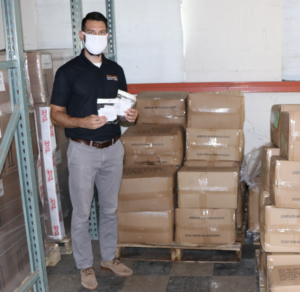
Even though Princeton ultimately decided that undergraduate education will be fully remote this fall, the campus will host some undergraduates with special housing needs, as well as graduate students, faculty and essential staff. Beginning this week, the campus community will receive packets with Reverie’s masks when they attend asymptomatic screening clinics during orientation.
To date, Reverie is approaching 1 million donated masks to nonprofits, healthcare providers, the State of Michigan and other public institutions.
“We saw a great need and filled it because we had the resources to do so,” Rawls-Meehan said. “This isn’t a moneymaker for us, but if we can get masks out there, and people are a little bit better protected, that’s a good thing.”
Reverie’s adjustable bed and mattress business has started to revive, and Rawls-Meehan and Tan, as well as the entire Reverie team, are hopeful that some return to normalcy is within reach.
“Everyone is a bit numb as this work-at-home has become a way of living for now,” Tan said. “And I think, as we think about the slow return to socialization in the months ahead, it’s important to remain alert and vigilant and energized about what we can do to keep everybody safe.”


